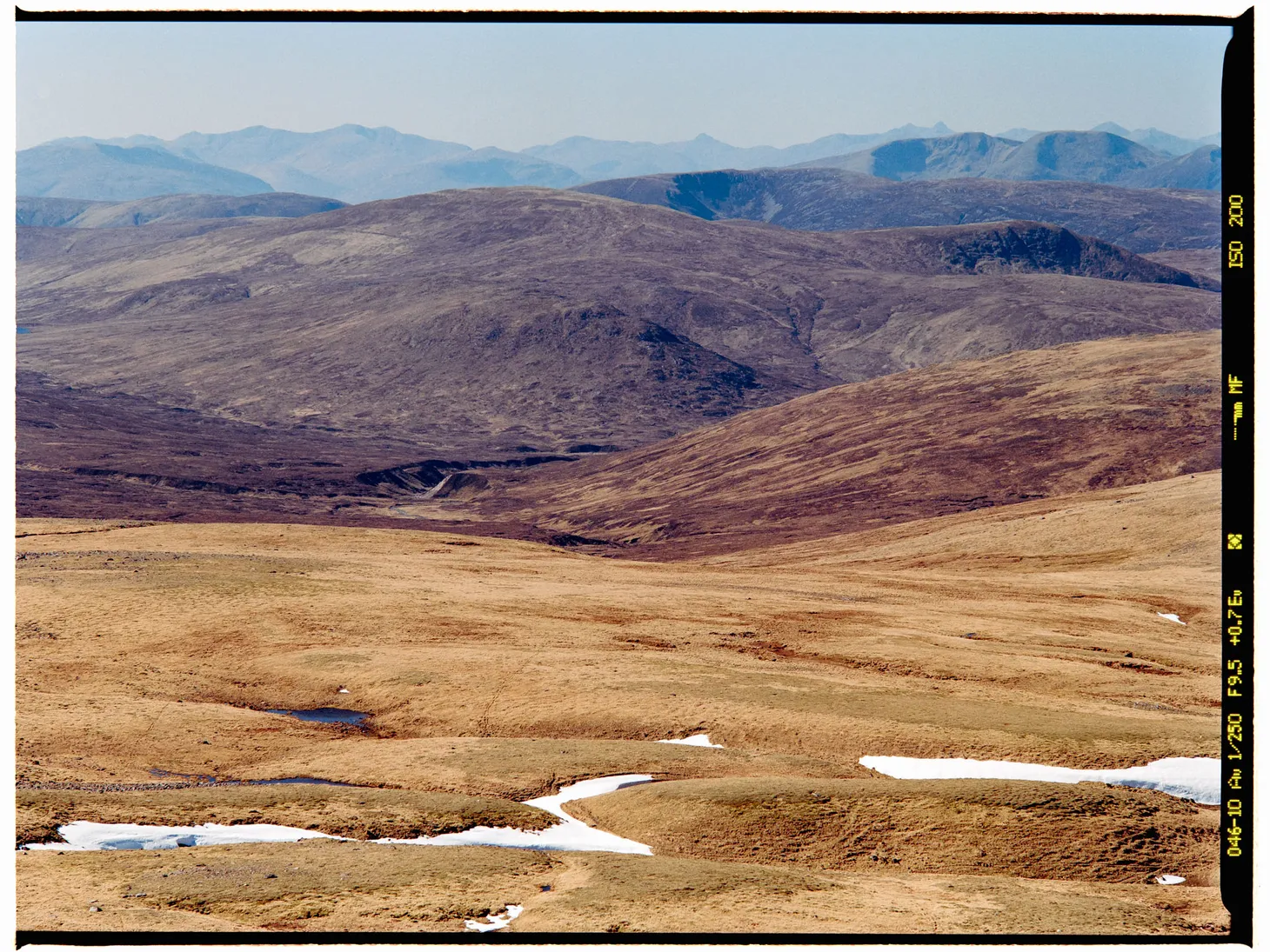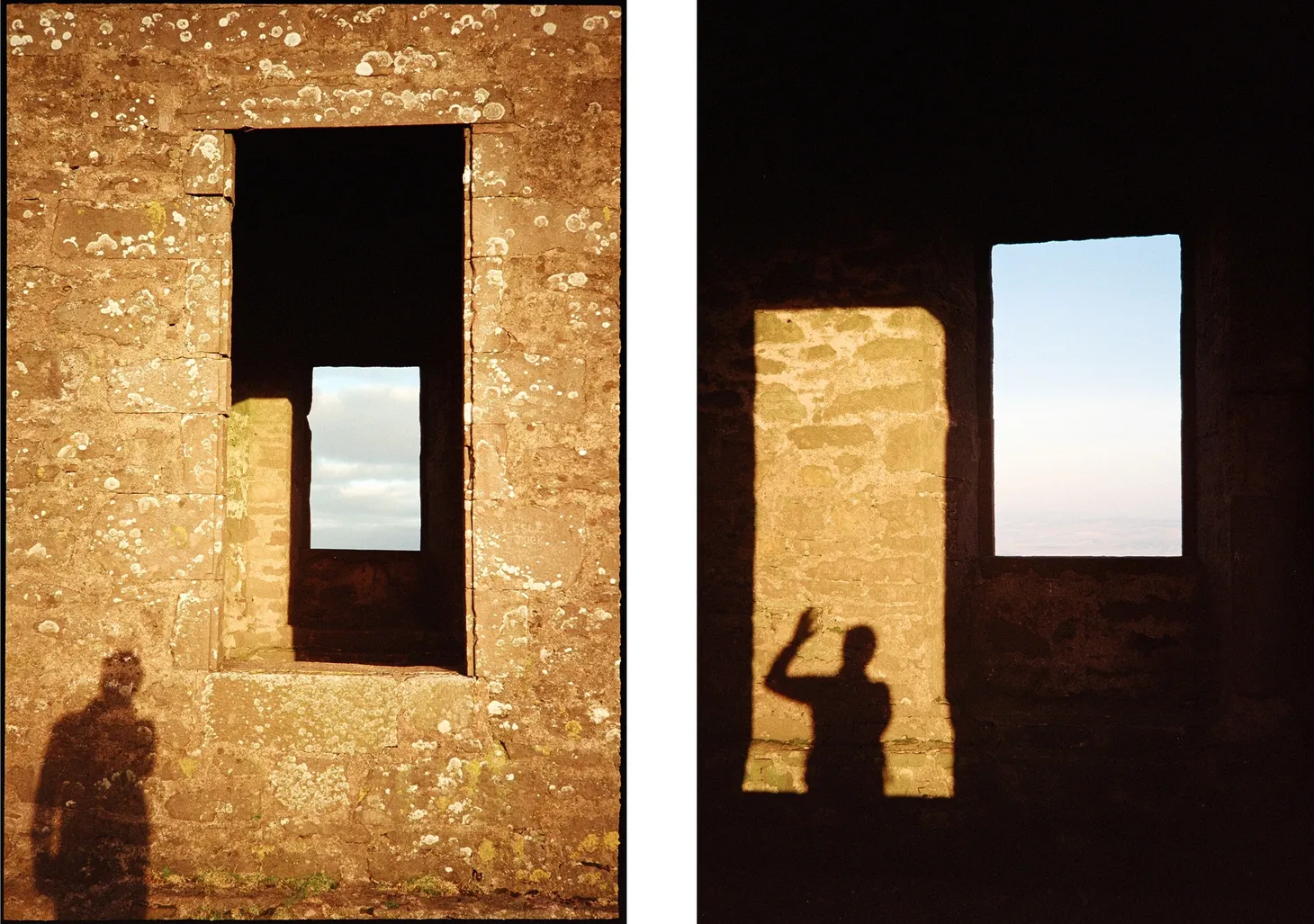Unplugged #3: The Dundee Mountain Film Festival, an expanded analogue environment, and returning to the ice
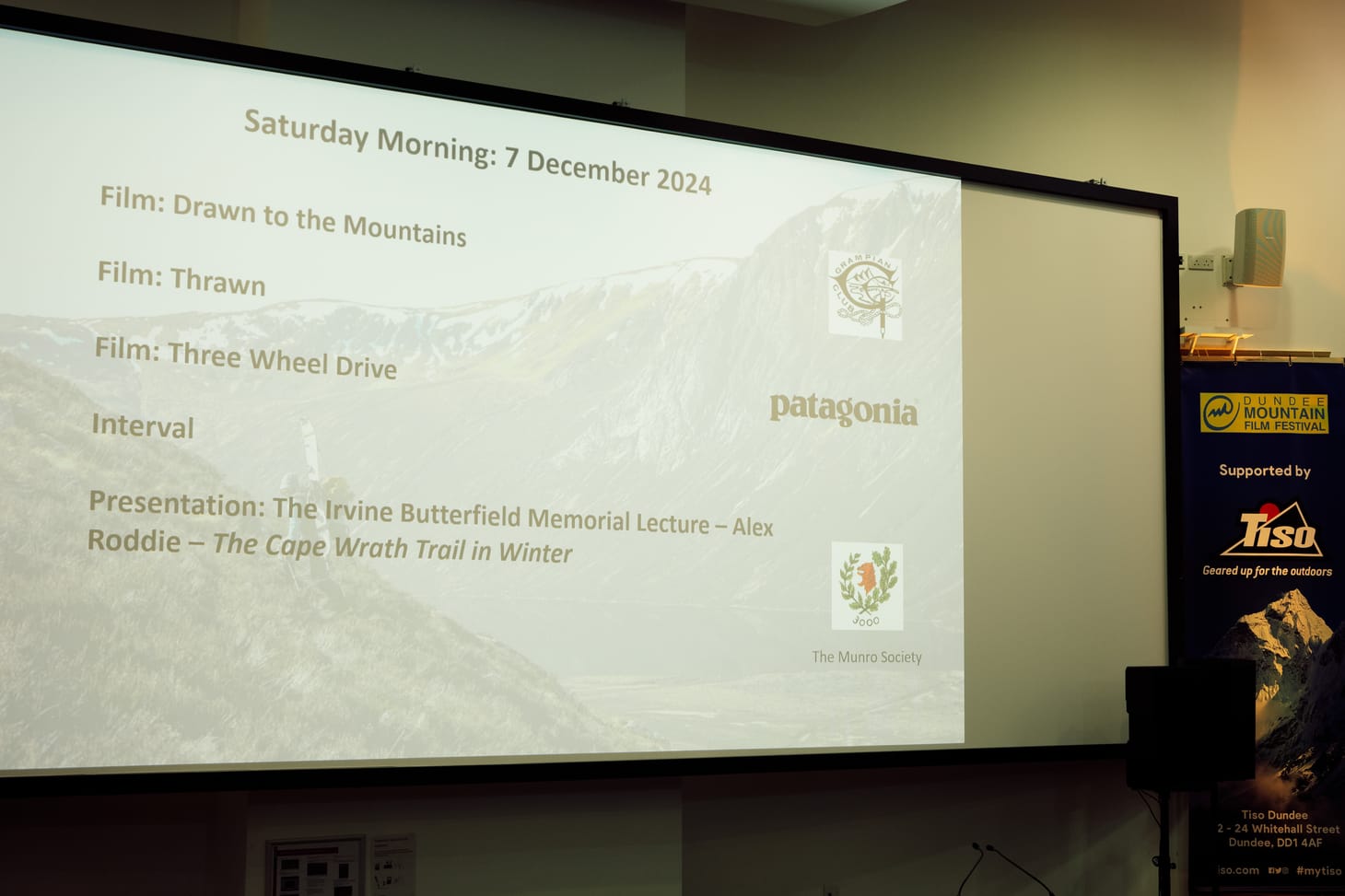
Table of Contents
This weekend, I attended the Dundee Mountain Film Festival for the first time. Here's what I noticed.
Dundee Mountain Film Festival is the UK's longest continuously running mountain festival. It's also local to me – I can be there in half an hour. So when I was contacted by the organisers to see if I'd be willing to speak on the Saturday morning, I agreed immediately.
My first impressions were positive. The venue has moved to the Dalhousie Building, part of the university complex, and in the spacious foyer I noticed an exhibition of classic climbing photography including contributions by Doug Scott and Sir Chris Bonington. I bumped into Alan Rowan almost immediately and we had a catch-up chat about books and night hiking.
The festival organisers looked after me very well. I was particularly impressed by the slick A/V situation. My laptop was linked to the projector and tested before the session began, and I was hooked up with a wireless microphone in case I fancied wandering about during my talk. The auditorium was large, with a huge screen and sloping stage affording an excellent view of the audience.
But before my talk began there were several films scheduled in the programme. I settled down to enjoy them along with everyone else, and was pleased to see a good turnout in the auditorium – perhaps 75% full for the morning sessions (very rough estimate about 200–250 people).
The three films being shown before my talk were Drawn to the Mountains by Roxanna Barry, Thrawn by Hannah Bailey, and Three Wheel Drive by Stefan Morrocco. All were great, and I'm already familiar with Thrawn, but Drawn to the Mountains had to be my favourite. This is the story of Tessa, an artist who combines her passion for drawing with adventures into the Cairngorms in winter.
Then it was time for my talk! My role was to give the Irvine Butterfield Memorial Lecture, commemorating the well-known outdoor writer who passed away in 2009. Each year features a different speaker. Oliver Bartrum, President of the Munro Society, introduced me with a few words, and then I began a variant of the winter Cape Wrath Trail talk I have now delivered several times.
This time I clocked the talk at 50 minutes, and it went very well even though it's been over a year since I've spoken about this particular subject. My style is to use only the barest possible speaker notes, and ad lib the rest. The wheels tend to fall off if I try to memorise a speech by rote or (worse) read from a screen or printout.
The audience was superb, laughing and nodding at the right points respectively. I also answered several intelligent questions at the end. This audience seemed really interested by my points about disconnection and community and what I learned about these things on the Cape Wrath Trail.
You can see a few pictures from the event on DMFF's Facebook page here. And yes, I managed to sneak my anti-AI propaganda up onto yet another stage.
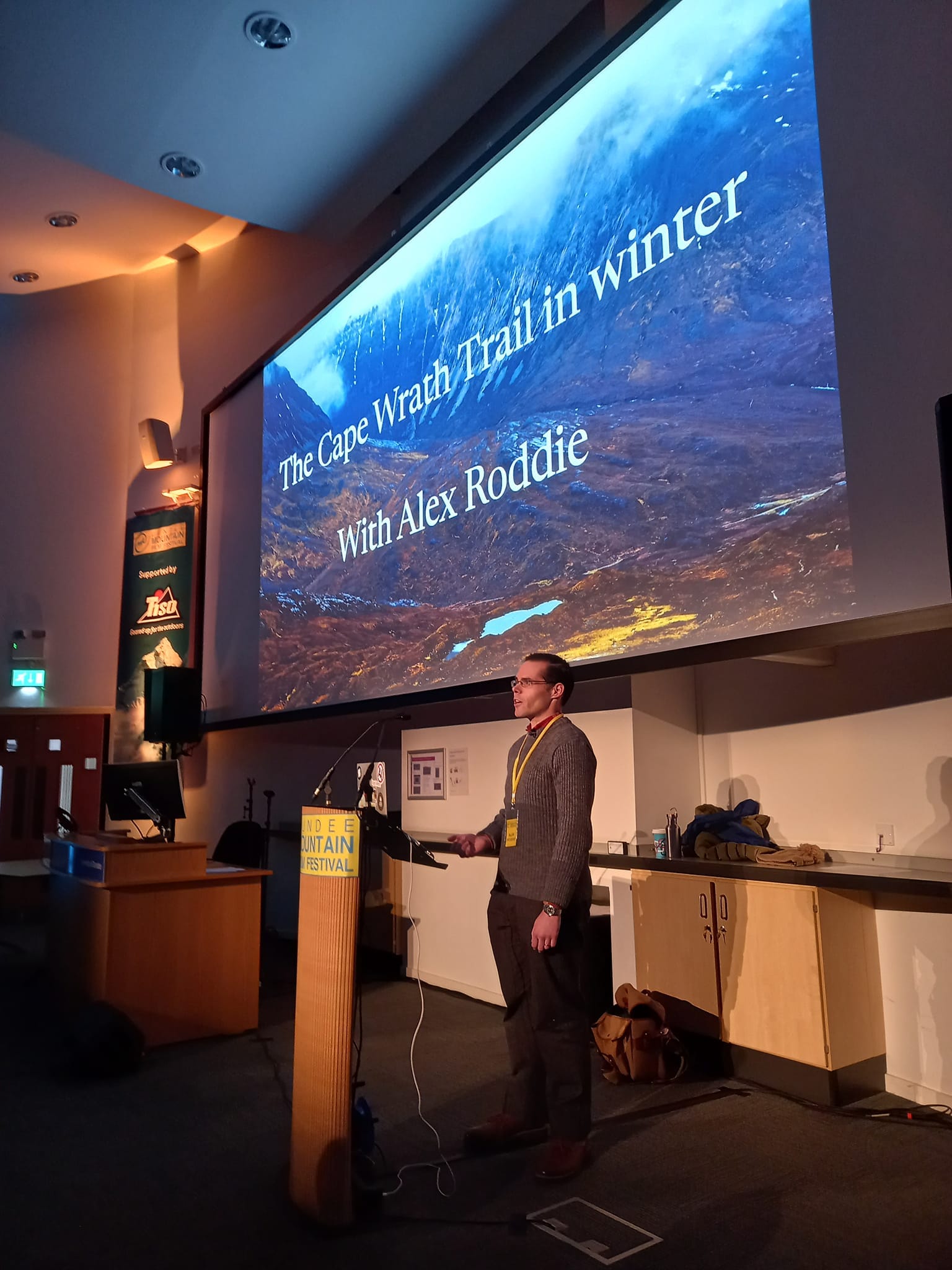
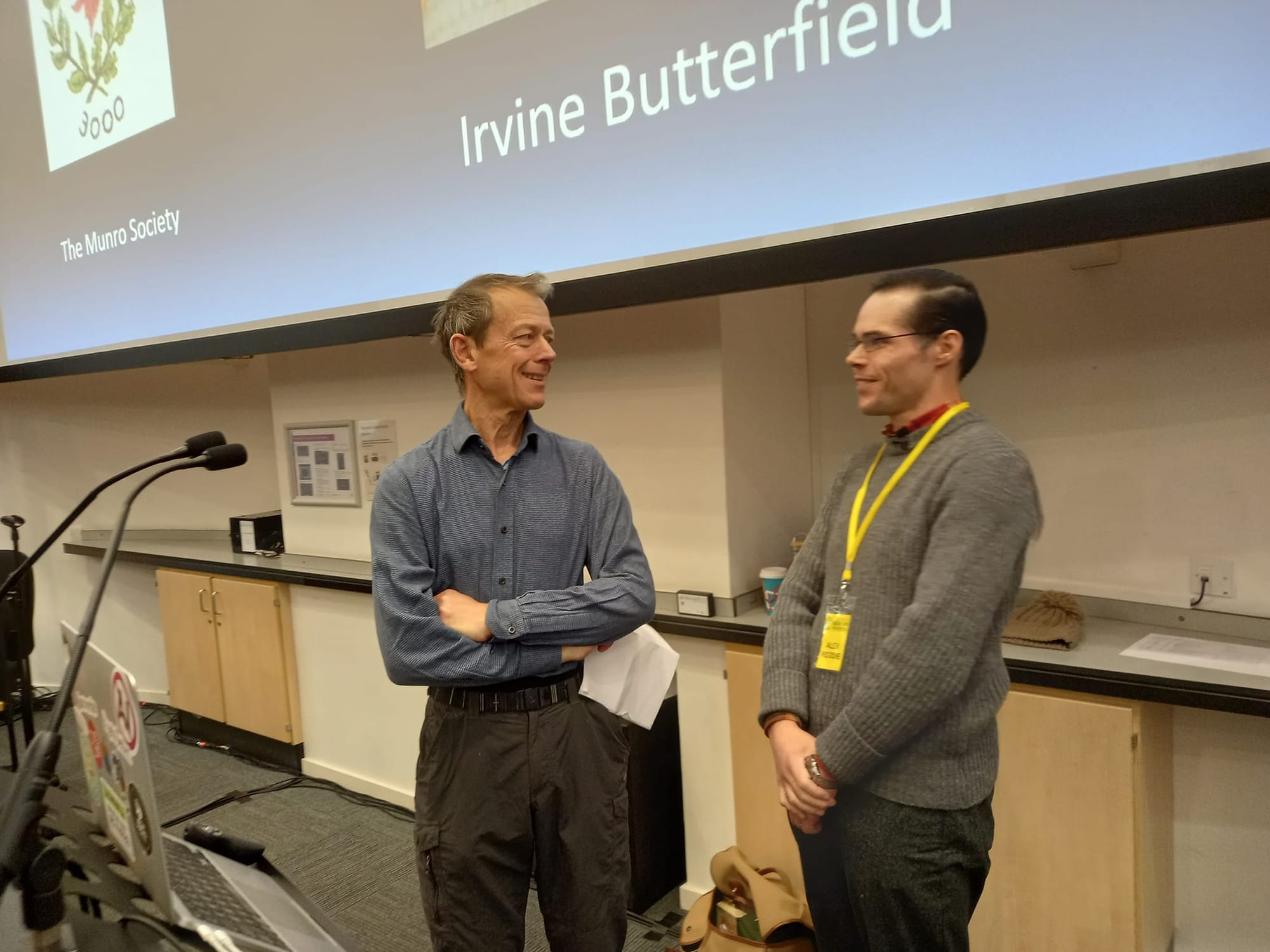
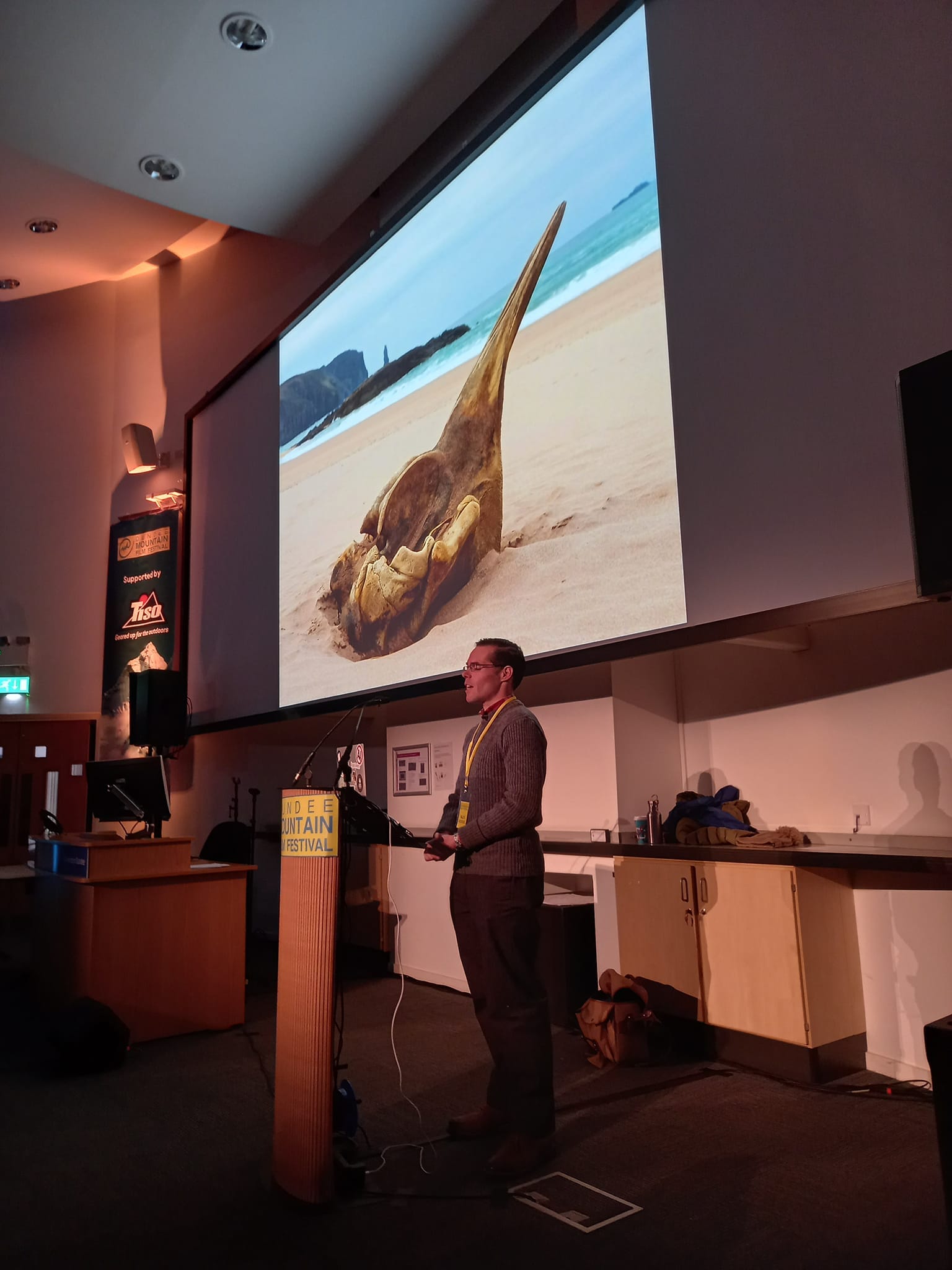
Photos courtesy of Rod Crawford. In the middle image I'm talking to Oliver Bartrum
I also attended the afternoon session, which had a cracking selection of films: Fuego, Driving Sweep, Hope, and The Magic of Freedom (my favourite of the four). Anna Wells then spoke about her experience climbing all the Munros during a single winter season.
So what were my overall impressions of DMFF? Overwhelmingly positive. Such a breath of fresh air compared to Kendal, which can feel a bit like a rugby scrum these days – just too much happening all at once. I also sensed that DMFF was a bit more oriented towards regular hill folk and less oriented towards commercialism and brands. There's room for both, of course, but it was refreshing to see an audience mostly dressed in tatty 20-year-old Páramo jackets or normal clothes – yes, it is allowed to wear non-outdoor brands when you aren't on a hill – rather than brand new down jackets. And outside the lecture theatre, most of the stalls were for community organisations such as hillwalking and climbing clubs (which are thriving in Angus) rather than outdoor clothing brands.
After the event, Allan Brown, who booked my talk, told me by email, 'One of the main aims of the festival is a meeting place for folk to reunite and celebrate the outdoors as well as trying to promote local filmmakers and speakers when we can.'
I'm certain there's less money floating around at DMFF compared to KMF, but that doesn't translate to a less interesting programme; quite the contrary. I'll certainly be back to DMFF next year.
Closer to home, I've been making some changes to my study. I'd run out of bookcase space, so have managed to squeeze a third set of shelves behind the record player. I finally have room to grow again! The Christmas break means time in charity shops and second-hand bookshops, and that means more books.
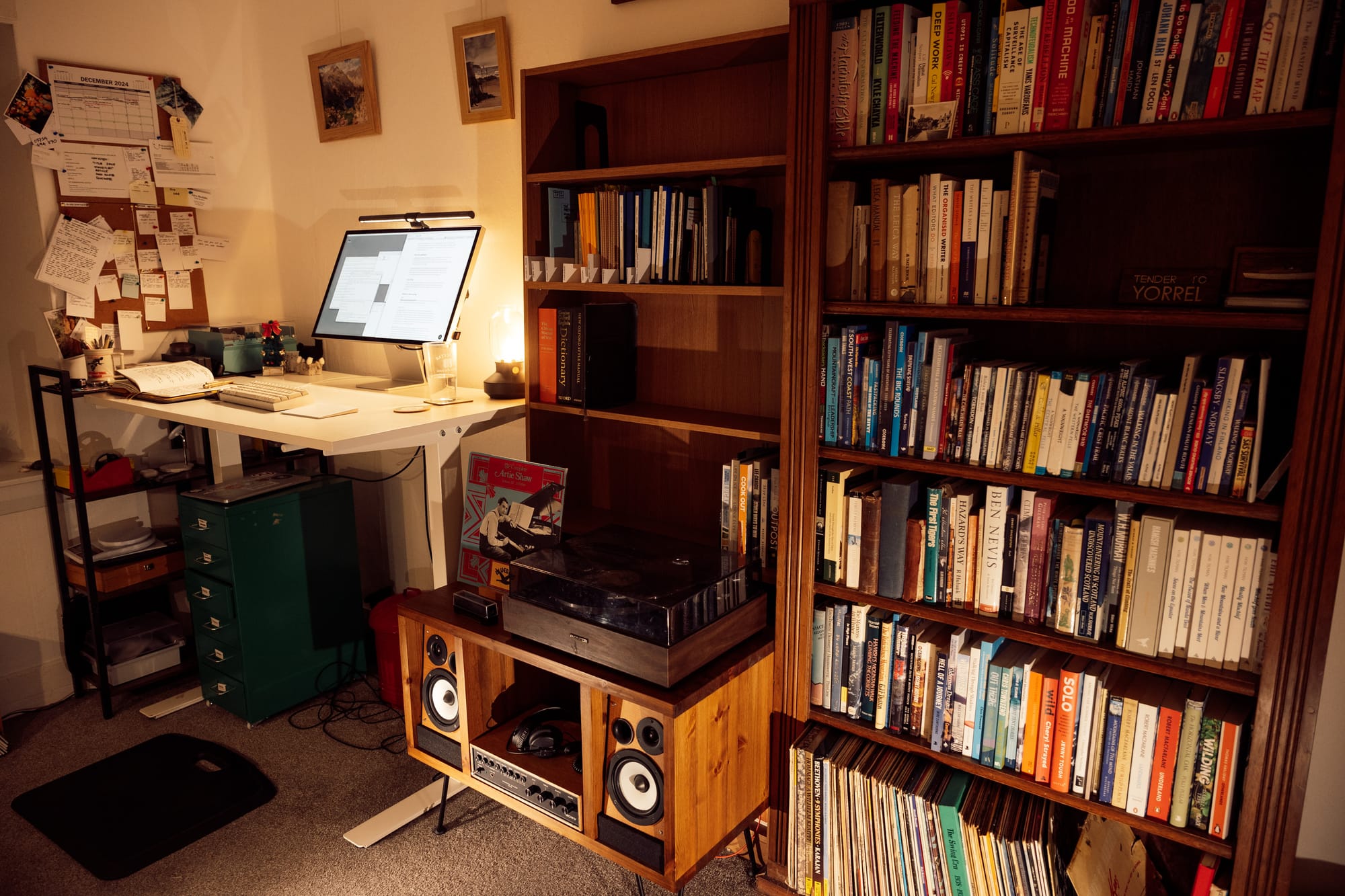
As I stand in my study and look around, I'm struck by how my analogue world has expanded in recent years while my digital world has contracted. A few years ago it was the other way around: computers and screens everywhere, and most of my books banished to another room. But since 2018/19 I've gone hard in the other direction. That's when I finally lost my faith in the digital world I'd believed in for so long. Why? Because it repeatedly failed me in ways the analogue world never will.
The digital world is now quarantined to three places only: my main work desk (home to a Studio Display hooked up to my MacBook under the desk), a printer trolley near the door which also doubles up as a charging zone for power banks and cameras, and my film scanner (remind me to write about this soon). Oh, and there are a couple of digital cameras in the camera cabinet too.
I have an entire desk kept strictly reserved for analogue devices and tools only. I find this essential as a calm, quiet, ordered place for creative work. The digital world is fast, overwhelming, and chaotic. I need that world in order to make a living, but I have to keep it carefully contained and controlled.
Isn't it great that we live in a world where we can choose? As I wrote back in May, 'I don't want to return to a world of hardcore analogue workflows where absolutely everything must be done by hand because there are no better tools. I want a world where we all have access to a range of tools that exert differing levels of creative friction – and where we can mindfully select these tools for the job at hand.'
Recently published
Returning to the Ice – My interview with polar explorer Lonnie Dupre. It was a pleasure to be able to interview Lonnie in person at Kendal Mountain Festival. We chatted about his love of Greenland (and the Greenland dogs), climate change in the Arctic, and his wish for adventurers to pivot towards solutions-based expeditions. Talking about the role of adventure in helping to create change when it comes to the environment, I asked him, 'Is what we’re doing effective?' and Lonnie answered 'That's a big no.'
Issue 43 of Like the Wind magazine is out now! I've been working on this superb indie running magazine for a few months now, and #43 has really raised the bar (as Simon Freeman says in his LinkedIn announcement post here, 'LtW#43 is the high water mark so far'). Just look at that incredible cover. You'll find plenty of my handiwork inside, including an interview with Sifra Kuijten. My favourite piece has got to be 'Connecting the Curtain' by Nico Lumma.
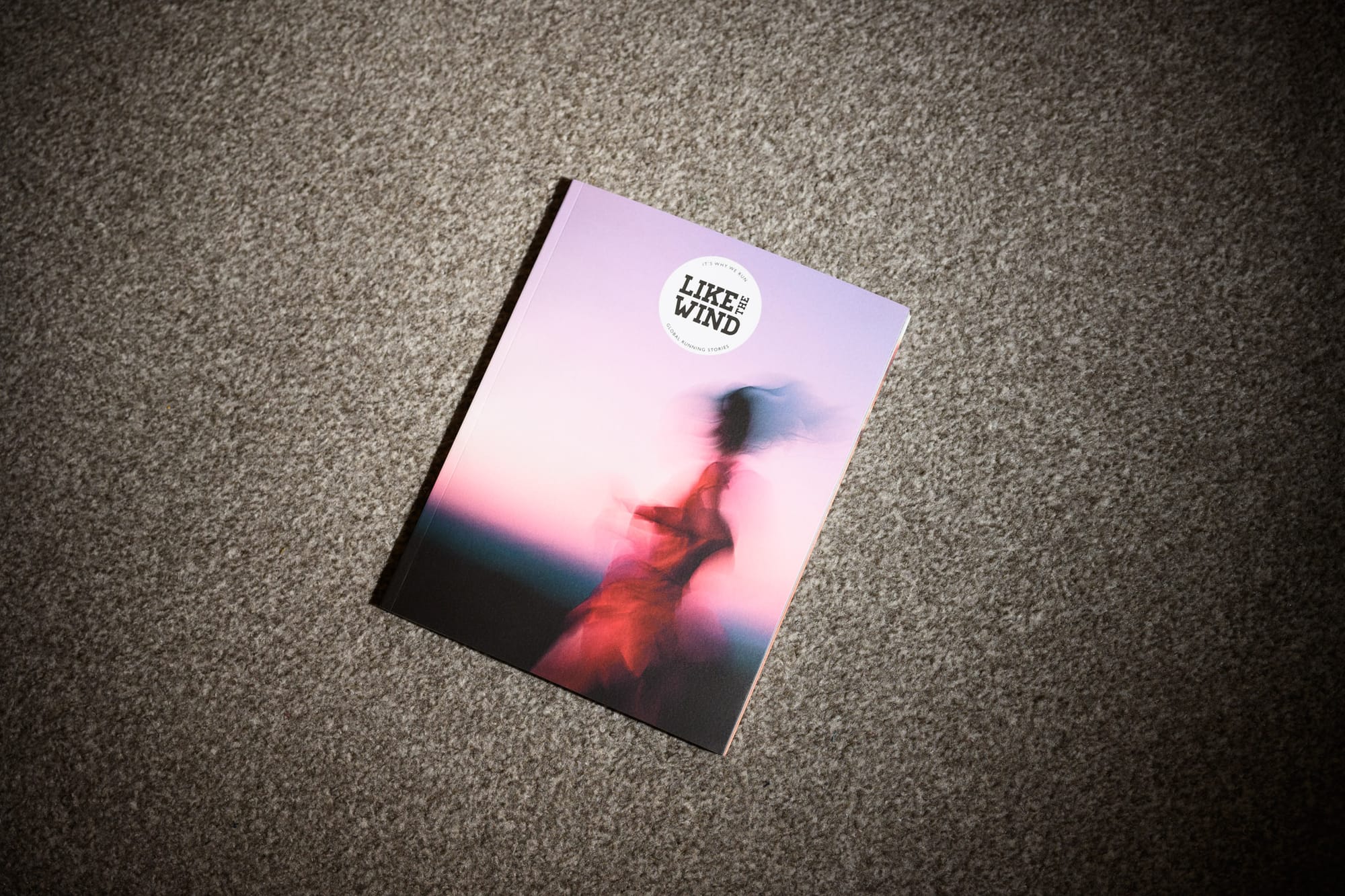
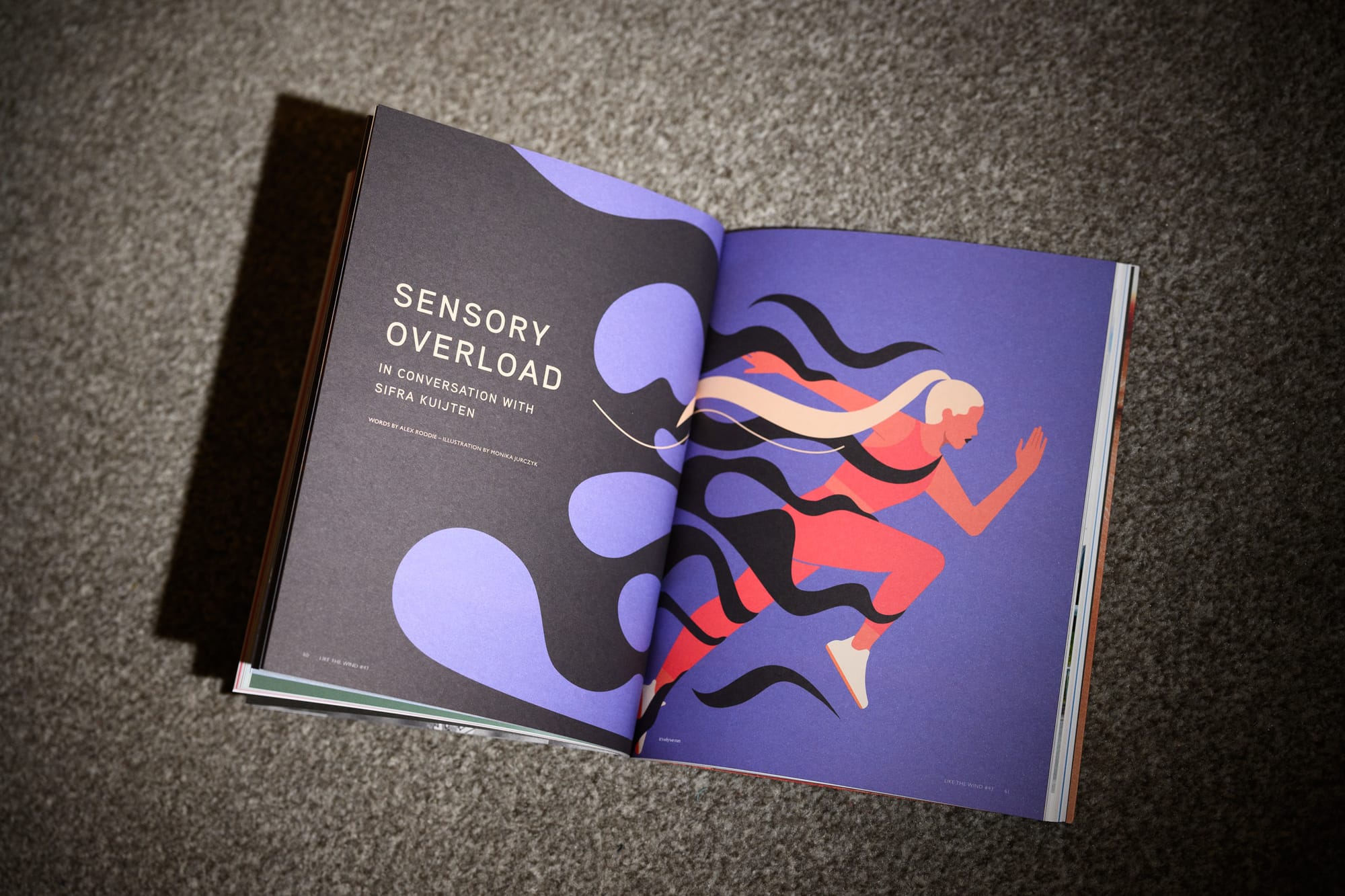
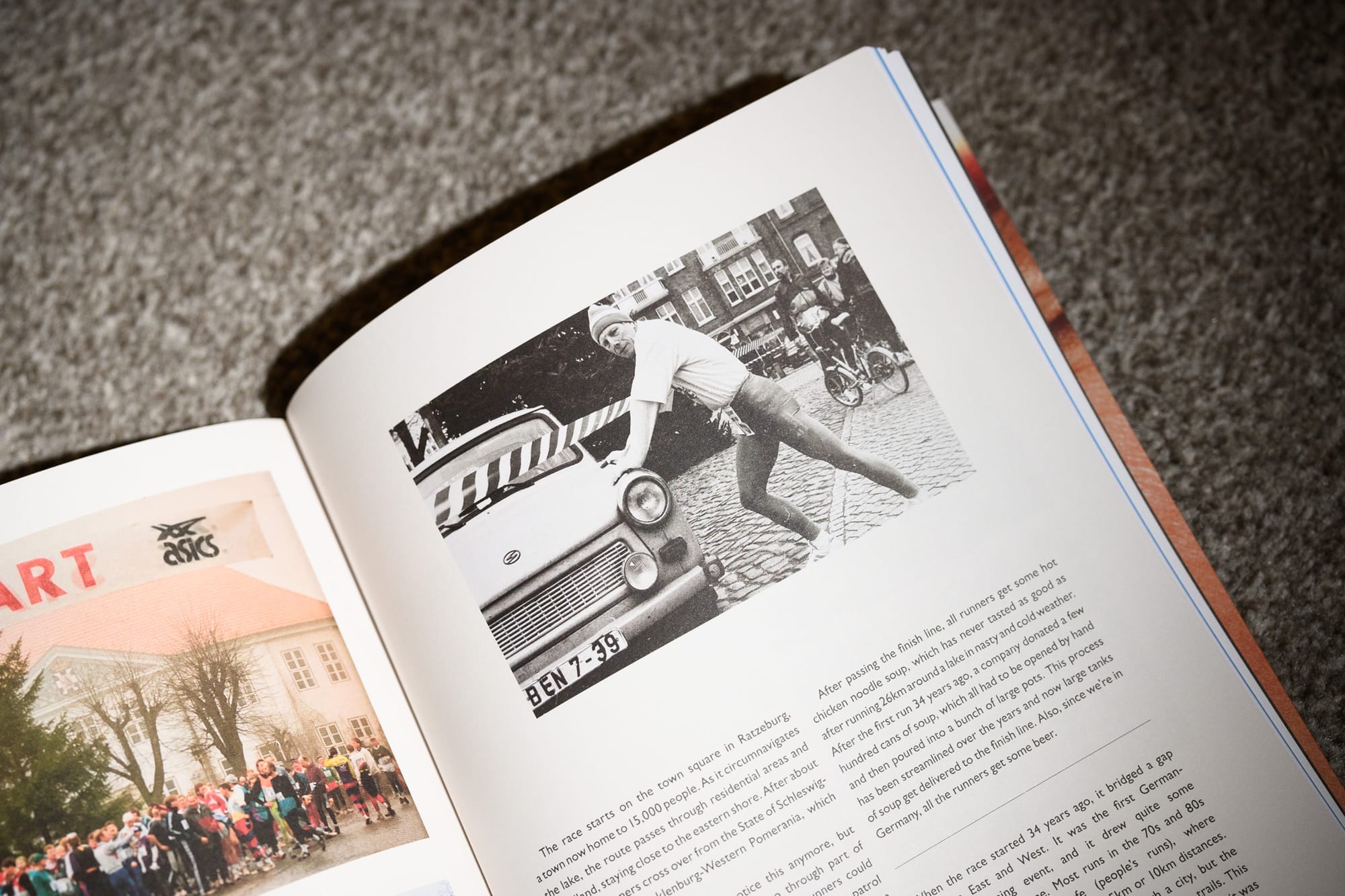
Finally, my gear guide to two-person tents for TGO magazine is now online.
What I've been reading
Books
I'm still reading Rivers of London by Ben Aaronovitch. I've almost finished this one, and am eyeing up my TBR shelf for my next read.
Online stuff
No more 'Damsel in Distress Wearing Bibshorts' – We can all learn from Jenny's attitude to bike maintenance here. Especially clueless me. My bike currently has a busted brake and I'm trying to find the time to take it to the workshop in the next town. I'd really like to be able to fix it myself. Time to buy a maintenance handbook and some tools.
The Enclosure of the Human Psyche – A superb essay from L.M. Sacasas, one of my favourite writers on the moral philosophy of technology. It is worth reading this unpacking of a simple but potent analogy in full. 'In my view, the most important task before us is to resist the enclosure of the human psyche, because even our capacity to imagine an alternative way being in the world, to say nothing of enacting such a vision, depends on it.'
On blogging, substacking (?), and owning digital real estate – A thoughtful piece from Manuel Moreale looking at the dilemma of how to publish online in the year 2024. He articulates some of my own unease about Substack, especially its business model, and points out the likelihood of enshittification. Ultimately there are no right or wrong answers about this. I'll continue to use Substack, but I remain wary about it, and I certainly would not go all-in on the platform.
A Christmas Insights Discount (And Independent Gift Guide) – Some great ways to support independent media and creatives here from Matt Barr at Looking Sideways.
Explained: how you will get into vintage fountain pens – A lovely whimsical read. It's about vintage pens, but honestly, it could be about any of these geeky hobbies people like us pour our passion into. I don't know you, dear reader, but if you're reading my work then I'm pretty sure you're at least somewhere on the geek spectrum. One of us! One of us!
That's all, folks
If you like what you've read, please subscribe to receive updates in your inbox – or add my feed to your RSS reader. If you prefer to read on Substack, you can subscribe at alexroddie.substack.com.
Thanks for your support. And if you've enjoyed what you have read, please tell someone else about it!
Are you receiving two copies of my posts in your inbox? You might be subscribed on both alexroddie.com and Substack. Here's a FAQ with instructions on what to do.
Alex Roddie Newsletter
Subscribe here to receive my occasional personal newsletter in your inbox. (For the fun stuff, please consider subscribing to Alpenglow Journal instead!)


